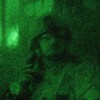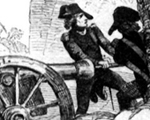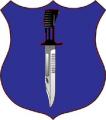Looking for any books, articles, or even websites on Greys Scouts, the horse-mounted infantry used in Rhodesia in the Sixties and Seventies. Any other information on the use of horsed cavalry in post-WWI small wars would also be welcome. Contrasting cavalry with early mechanization in small wars and trying to determine if there was much of a place for cavalry in small wars once tank and automobile technology became pretty dependable in the Thirties.





 “There is no hunting like the hunting of man, and those who have hunted armed men long enough never care for anything else thereafter.”
“There is no hunting like the hunting of man, and those who have hunted armed men long enough never care for anything else thereafter.” 








 "A Sherman can give you a very nice... edge."- Oddball,
"A Sherman can give you a very nice... edge."- Oddball, 


Bookmarks